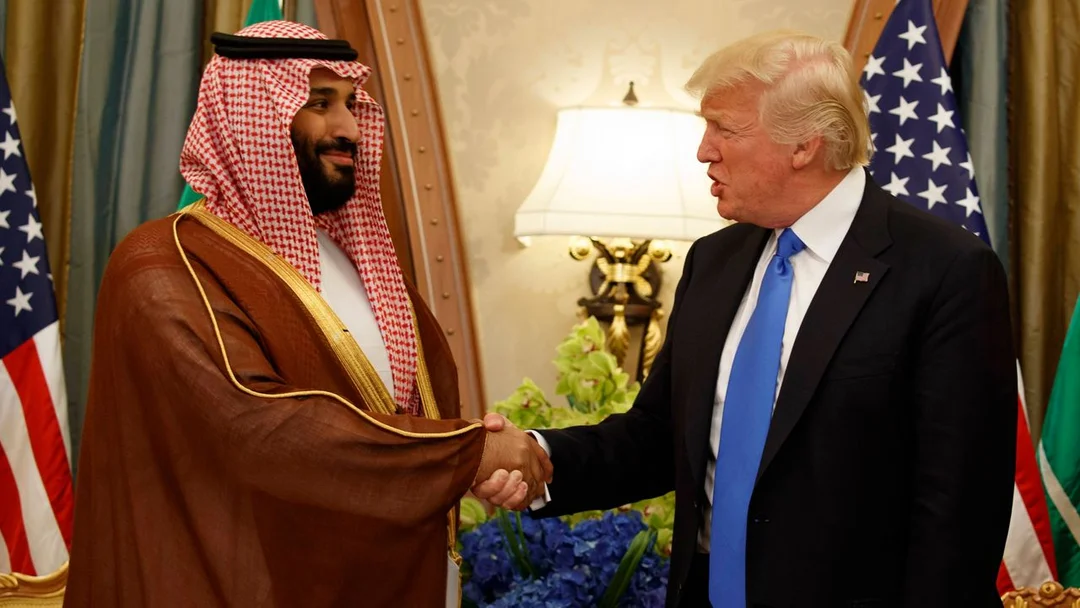
Are Trump and Netanyahu Really on the Same Side in Dealing with Iran?
In the ever-evolving landscape of Middle Eastern politics, a pivotal question has arisen: Are U.S. President Donald Trump and Israeli Prime Minister Benjamin Netanyahu truly aligned in their strategies concerning Iran? As negotiations between Washington and Tehran gain momentum, this inquiry becomes increasingly significant.
During a recent meeting, Trump declared that he and Netanyahu are "on the same side of every issue" regarding Iran. However, with the stakes so high, this assertion is being put to the test. Netanyahu has consistently emphasized a hawkish approach, explicitly stating that he wishes to maintain the "military option" to dismantle Iran's nuclear capabilities.
Netanyahu's rhetoric comes at a time when the U.S. has been navigating a delicate diplomatic dance with Iran. He firmly believes that any agreement forged must not only halt Iran's nuclear ambitions but should be modeled after the recent disarmament of Libya—a strategy that Trump has yet to endorse publicly. "We agree that Iran will not have nuclear weapons," Netanyahu asserted, urging for a Libyan-style agreement under U.S. supervision. This historic reference to Muammar Gaddafi’s ousting serves as a stark reminder of the potential consequences of such agreements.
Contrastingly, President Trump’s stance reflects a reluctance to engage the U.S. military further in the Middle East. While Trump has not ruled out military action against Iran, his administration's recent statements suggest a more calculated approach, striving to limit Iran's nuclear program to levels required for peaceful energy rather than total disarmament. Lead negotiator Steve Witkoff has indicated that they aim to eliminate nuclear enrichment altogether, yet the definitions and frameworks of such agreements remain vague.
The divergent strategies highlight a growing rift between the tactics favored by Netanyahu and the cautious approach advocated by Trump. While both leaders may publicly champion a unified front, the practicalities of their policies differ significantly. Trump’s hesitation reflects a broader fatigue within American foreign policy regarding Middle Eastern conflicts, raising questions about whether a military solution is viable or even desirable.
As the situation unfolds, how closely aligned are the U.S. and Israeli governments? If Trump seeks to avoid another war while Netanyahu pushes for aggressive tactics, the forthcoming negotiations may reveal more than just the potential fate of Iran's nuclear program; they could also signal shifts in the enduring U.S.-Israel partnership. With both leaders at the helm, the real challenge lies in reconciling their objectives without sacrificing regional stability.
In this complex diplomatic landscape, one has to wonder: Can common ground be found between Trump's reluctance and Netanyahu's assertiveness? As these negotiations progress, the answers may define not only the future of Israeli-Iranian relations but also the geopolitical climate of the Middle East.
Latest
Are Ethnic Studies Courses the Future or Just a Controversial Trend in California Schools?
3 hours agoCan the Voice of America Survive the Trump Administration’s Cuts? A Court Ruling Says Yes
3 hours agoCan Trump Turn the Tide on Trade Negotiations?
4 hours agoWhat Legacy Will Pope Francis Leave Behind?
9 hours agoCan you Like
As President Donald Trump embarks on a crucial phase of negotiations with various countries, the stakes are high for both the U.S. economy and global trade relations. Recently, Trump paused the most a...
In a recent exchange that has piqued the interest of political observers, U.S. President Donald Trump and Israeli Prime Minister Benjamin Netanyahu claimed to be on the "same side of every issue" foll...
In a surprising announcement on his social media platform Truth Social, former President Donald Trump revealed that he will be delivering the commencement address at the University of Alabama, sparkin...